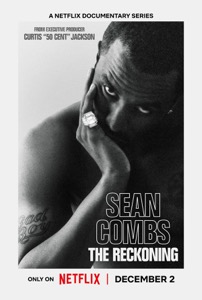Entertainment
Paula Abdul Sues ‘American Idol’ Producer Nigel Lythgoe for Sexual Assault on December 30, 2023 at 2:58 pm Us Weekly
Paula Abdul has named reality TV producer Nigel Lythgoe in a new lawsuit, accusing him of sexual assault, Us Weekly can confirm.
Abdul, 61, claimed that Lythgoe, 74, assaulted her multiple times back when she was a judge on both American Idol and So You Think You Can Dance, according to court documents obtained by Rolling Stone. Abdul filed her lawsuit on Friday, December 29. (Lythgoe has not publicly addressed Abdul’s allegations. Us has reached out to both Lythgoe and Abdul for comment.)
Abdul was a judge on American Idol for its first eight seasons, beginning in 2002. Lythgoe, meanwhile, was a producer on the singing competition until 2014. According to Abdul’s lawsuit, she claimed that Lythgoe “verbally insulted and belittled” her and called her a “has-been” when they first met about her signing on as a judge. She also claimed that Lythgoe bullied her after she took the judging gig.
Abdul also alleged that Lythgoe sexually assaulted her in the elevator of a hotel room when they were traveling for auditions on one of the “initial seasons” of Idol. Abdul did not list a specific year of the encounter but claimed that Lythgoe “shoved [her] against the wall” and groped her body.
Paula Abdul and Nigel Lythgoe. Alberto E. Rodriguez/Getty Images
“Abdul attempted to push Lythgoe away from her. When the doors to the elevator for her door opened, Abdul ran out of the elevator and to her hotel room,” the court documents read. “Abdul quickly called one of her representatives in tears to inform them of the assault.”
Abdul chose not to address the accusations at the time out of fear of retaliation, claiming in her lawsuit that Lythgoe had the power to fire her from American Idol.
Several years later, Abdul claimed that Lythgoe assaulted her for a second time in 2014. She claimed that Lythgoe had invited her to his house for a professional dinner meeting, where he allegedly “forced himself on top of [her]” and “attempted to kiss her.”
“Abdul pushed Lythgoe off of her, explaining that she was not interested in his advances and immediately left,” the suit reads, noting Abdul chose not to publicly discuss the alleged incident due to her contracts.
Paula Abdul and Nigel Lythgoe. Steve Granitz/WireImage
Abdul, who briefly joined the So You Think You Can Dance judging panel in 2014 alongside Lythgoe, claimed in her legal filing that her contracts from both Idol and SYTYCD “prohibited [her] from publicly disclosing sensitive information” about the shows and its business affairs.
During her time on So You Think You Can Dance, Abdul also allegedly witnessed Lythgoe sexually assault one of her assistants without consent. Lythgoe has not publicly addressed the claims.
Abdul filed her lawsuit, in which she is seeking damages for sexual assault/battery, sexual harassment, gender violence and negligence, in Los Angeles under California’s Sexual Abuse and Cover-Up Accountability Act, which allowed victims a one-year window to file sexual abuse lawsuits that would otherwise be outside the statute of limitations. The deadline expires on Sunday, December 31.
If you or someone you know has been sexually assaulted, contact the National Sexual Assault Hotline at 1-800-656-HOPE (4673).
Paula Abdul has named reality TV producer Nigel Lythgoe in a new lawsuit, accusing him of sexual assault, Us Weekly can confirm. Abdul, 61, claimed that Lythgoe, 74, assaulted her multiple times back when she was a judge on both American Idol and So You Think You Can Dance, according to court documents obtained by Rolling Stone.
Us Weekly Read More
Entertainment
What We Can Learn Inside 50 Cent’s Explosive Diddy Documentary: 5 Reasons You Should Watch

50 Cent’s new Netflix docuseries about Sean “Diddy” Combs is more than a headline-grabbing exposé; it is a meticulous breakdown of how power, celebrity, and silence can collide in the entertainment industry.
Across its episodes, the series traces Diddy’s rise, the allegations that followed him for years, and the shocking footage and testimonies now forcing a wider cultural reckoning.

1. It Chronicles Diddy’s Rise and Fall – And How Power Warps Reality
The docuseries follows Combs from hitmaker and business icon to a figure facing serious criminal conviction and public disgrace, mapping out decades of influence, branding, and behind-the-scenes behavior. Watching that arc shows how money, fame, and industry relationships can shield someone from scrutiny and delay accountability, even as disturbing accusations accumulate.

2. Never-Before-Seen Footage Shows How Narratives Are Managed
Exclusive footage of Diddy in private settings and in the tense days around his legal troubles reveals how carefully celebrity narratives are shaped, even in crisis.
Viewers can learn to question polished statements and recognize that what looks spontaneous in public is often the result of strategy, damage control, and legal calculation.
3. Survivors’ Stories Highlight Patterns of Abuse and Silence
Interviews with alleged victims, former staff, and industry insiders describe patterns of control, fear, and emotional or physical harm that were long whispered about but rarely aired in this detail. Their stories underline how difficult it is to speak out against a powerful figure, teaching viewers why many survivors delay disclosure and why consistent patterns across multiple accounts matter.
4. 50 Cent’s Approach Shows Storytelling as a Tool for Accountability
As executive producer, 50 Cent uses his reputation and platform to push a project that leans into uncomfortable truths rather than protecting industry relationships. The series demonstrates how documentary storytelling can challenge established power structures, elevate marginalized voices, and pressure institutions to respond when traditional systems have failed.
5. The Cultural Backlash Reveals How Society Handles Celebrity Accountability
Reactions to the doc—ranging from people calling it necessary and brave to others dismissing it as a vendetta or smear campaign—expose how emotionally invested audiences can be in defending or condemning a famous figure. Watching that debate unfold helps viewers see how fandom, nostalgia, and bias influence who is believed, and why conversations about “cancel culture” often mask deeper questions about justice and who is considered too powerful to fall.
Entertainment
South Park’s Christmas Episode Delivers the Antichrist

A new Christmas-themed episode of South Park is scheduled to air with a central plot in which Satan is depicted as preparing for the birth of an Antichrist figure. The premise extends a season-long narrative arc that has involved Satan, Donald Trump, and apocalyptic rhetoric, positioning this holiday episode as a culmination of those storylines rather than a stand‑alone concept.
Episode premise and season context
According to published synopses and entertainment coverage, the episode frames the Antichrist as part of a fictional storyline that blends religious symbolism with commentary on politics, media, and cultural fear. This follows earlier Season 28 episodes that introduced ideas about Trump fathering an Antichrist child and tech billionaire Peter Thiel obsessing over prophecy and end‑times narratives. The Christmas setting is presented as a contrast to the darker themes, reflecting the series’ pattern of pairing holiday imagery with controversial subject matter.
Public and political reactions
Coverage notes that some figures connected to Donald Trump’s political orbit have criticized the season’s portrayal of Trump and his allies, describing the show as relying on shock tactics rather than substantive critique. Commentators highlight that these objections are directed more at the depiction of real political figures and the show’s tone than at the specific theology of the Antichrist storyline.
At the time of reporting, there have not been widely reported, detailed statements from major religious leaders focused solely on this Christmas episode, though religion-focused criticism of South Park in general has a long history.
Media and cultural commentary
Entertainment outlets such as The Hollywood Reporter, Entertainment Weekly, Forbes, Slate, and USA Today describe the Antichrist arc as part of South Park’s ongoing use of Trump-era and tech-world politics as material for satire.
Viewer guidance and content advisory
South Park is rated TV‑MA and is intended for adult audiences due to strong language, explicit themes, and frequent use of religious and political satire. Viewers who are sensitive to depictions of Satan, the Antichrist, or parodies involving real political figures may find this episode particularly objectionable, while others may view it as consistent with the show’s long‑running approach to controversial topics. As with previous episodes, individual responses are likely to vary widely, and the episode is best understood as part of an ongoing satirical series rather than a factual or theological statement.
Entertainment
Sydney Sweeney Finally Confronts the Plastic Surgery Rumors

Sydney Sweeney has decided she is finished watching strangers on the internet treat her face like a forensic project. After years of side‑by‑side screenshots, “then vs now” TikToks, and long comment threads wondering what work she has supposedly had done, the actor is now addressing the plastic surgery rumors directly—and using them to say something larger about how women are looked at in Hollywood and online.

Growing Up on Camera vs. “Before and After” Culture
Sweeney points out that people are often mistaking normal changes for procedures: she grew up on camera, her roles now come with big‑budget glam teams, and her body has shifted as she has trained, aged, and worked nonstop. Yet every new red‑carpet photo gets folded into a narrative that assumes surgeons, not time, are responsible. Rather than walking through a checklist of what is “real,” she emphasizes how bizarre it is that internet detectives comb through pores, noses, and jawlines as if they are owed an explanation for every contour of a woman’s face.
The Real Problem Isn’t Her Face
By speaking up, Sweeney is redirecting the conversation away from her features and toward the culture that obsesses over them.
She argues that the real issue isn’t whether an actress has had work done, but why audiences feel so entitled to dissect her body as public property in the first place.
For her, the constant speculation is less about curiosity and more about control—another way to tell women what they should look like and punish them when they do not fit. In calling out that dynamic, Sweeney isn’t just defending herself; she is forcing fans and followers to ask why tearing apart someone else’s appearance has become such a popular form of entertainment.












